On the campaign trail
Four candidates are running for two open seats on the Johnson County Board of Supervisors in November 2022. In the third and fourth installments of a four-part series, Daily Iowan photojournalists Ayrton Breckenridge and Grace Smith examined the daily lives of candidates Phil Hemingway and V Fixmer-Oraiz.
wan’s Oct. 10 print edition and online.
Editor’s Note: These two stories are the third and fourth installments in a fourpart series on the Johnson County Board of Supervisors election taking place on Nov. 8. The first two parts were published in The Daily Io

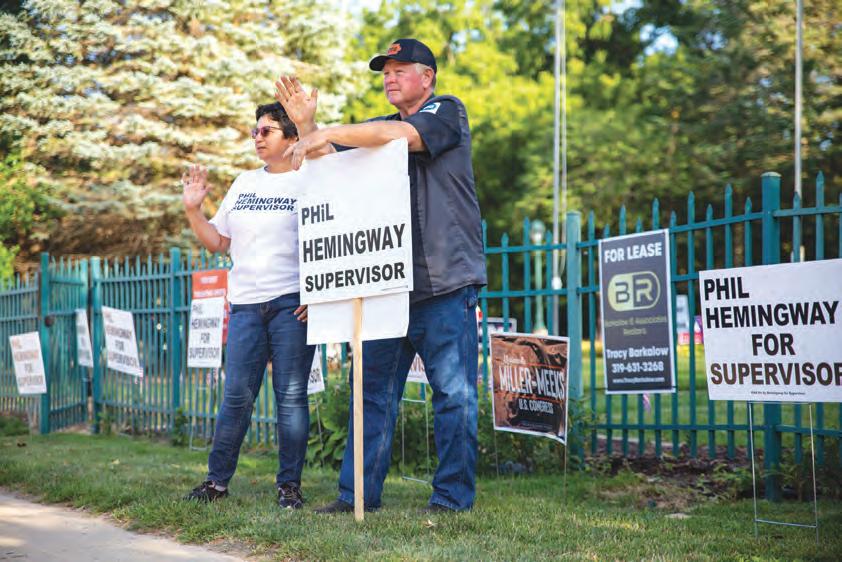
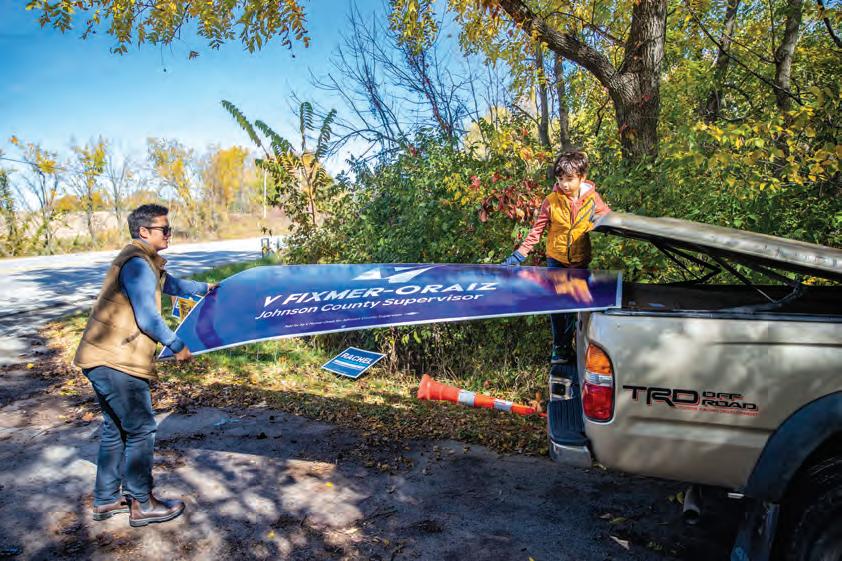
Four candidates are cur rently vying for two open seats on the Johnson Coun ty Board of Supervisors. The general election on Nov. 8 will determine who will fill those two positions be tween candidates Jammie Bradshaw, R-Lone Tree; V Fixmer-Oraiz, D-Iowa City; Jon Green, D-Lone Tree; and Phil Hemingway, R-West Liberty in Johnson County.
Bradshaw and Hem ingway ran unopposed in the June 7 primary, while Fixmer-Oraiz and Green beat out primary opponent
Seth Zimmermann by 2.7 percent and 1.5 percent respectively for their spots on the general election bal lot.
All five initial candidates announced bids for the two seats in March.
Green previously beat Hemingway in a special election for an open Board of Supervisors seat in sum mer 2021, replacing Janelle Rettig. Green earned 66 per cent of the vote and Hem ingway earned 31 percent.
Bradshaw and Fix mer-Oraiz have not previ ously campaigned for a seat on the board.
Starting Oct. 19, absen
tee ballots can be mailed into the county while in-person early voting be gins. Johnson County resi dents can vote early at the county Auditor’s Office at 913 S. Dubuque St. The vot er registration and absen tee ballot request deadlines are Oct. 24 at 5:00 p.m.

The polls open at 7:00 a.m. and close at 8:00 p.m. on Nov. 8 in Johnson County. All absentee bal lots must arrive by the 8:00 p.m. deadline to be counted in the election.

Polling places were up dated in January follow ing reprecincting by the state legislature.
Gov. Kim
Reynolds signed the new maps on Nov. 4, 2021. All new polling locations can be found on the county’s website.
These candidates are on the ballot during the 2022 midterm elections, where the state’s governor’s office, one U.S. Senate seat, all U.S. House seats, and all Iowa House and Senate seats are up for grabs.
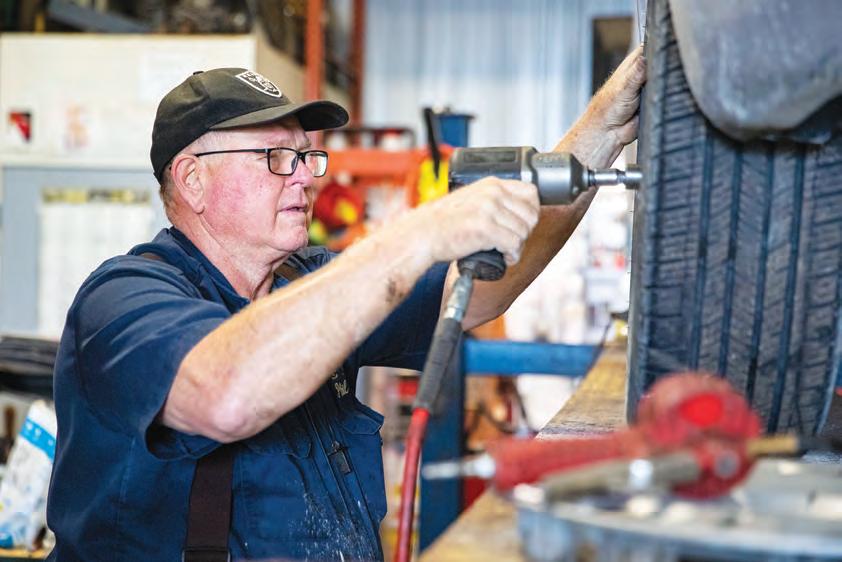
Three Daily Iowan photo journalists spent time with the four candidates, learn ing about who they are in their personal lives and who they are outside of their campaigns. They captured the stories of the four can
didates in four photo essays.
Today’s edition features stories on Hemingway and Fixmer-Oraiz, which focus on how they got their starts in politics and what they’re focusing on in the county supervisors’ race. The pro files of Green and Bradshaw and their campaigns were published on Oct. 10 both in print and online editions of the DI


Additional photos of the candidates and graphics about their campaigns can be found at dailyiowan.com.
eleanor-hildebrandt@uiowa.edu
Eleanor HildebrandtPhil Hemingway’s ride to politics
Ayrton Breckenridge Films Editor
In a small shop on the edge of Iowa City lies an auto garage where the walls are decorated with family pictures and the ground is coated in shoeprints revealed by gravel dust. The door is stick ered with red and blue text that reads “Phil’s Re pair LLC.”
At the helm of the ga rage stands Phil Heming way, a career mechanic born and raised in John son County. He carries a funnel and quart of oil in hand.
Phil has worked in and around a garage since 1997. Today, the 62-yearold lifelong Johnson County resident hopes to take the wisdom he’s gained working and living in the community to set him apart as a candidate for the Johnson County Board of Supervisors in the Nov. 8 elections.


David Hemingway, Phil’s older brother, points out that Phil has a remarkable talent for connecting with others. He recalls a moment as kids, when they lived on a farm outside of Morse and Oasis, when he was working on farm equip ment with Phil. At the time, David remembers 12-year-old Phil turning to him and saying, “David, you lack structural visual ization.”
Phil’s knowledge of farm equipment revealed to David not only Phil’s knowledge of mechanics but his innate ability to speak to people. Phil rec ognizes this is an advan tage and said he’s been a strong communicator throughout his life. He pointed to his four years

on the Iowa City School District school board from 2015 to 2019. He said that transition into public of fice allowed community members to come and speak their minds with him, which is an activity he enjoys and something he did himself for six years.
Phil sat down with a DI reporter to discuss his campaign, meeting at his home in rural Johnson County on the outskirts of West Liberty. Phil relaxed on a recliner in the living room while a high school football game played in the background. Photos capturing family memories sat atop the mantel, over looking the scene. Outside, the farmhouse is surround ed by corn and the yard is sprinkled with fallen wal nuts.
Finding Anita
In the ‘80s, Phil jumped on the opportunity to manage Roy Carver Sr.’s cattle ranch in Belize in the ‘80s when he was in his 20s. Carver’s son, Roy Carver Jr., hired him for the oversight position in 1984.

It was there that he met his future wife Anita Hemingway, and it is also where the two recently celebrated their 30th an niversary. Soon after get ting married, the couple moved back to Iowa and had their daughter Moni ca Homann in 1994.
Anita is another staple at Phil’s Repair. When she isn’t working as a nurse case manager for the sur gery specialty unit at the University of Iowa’s Hos pital and Clinics, Anita keeps Phil’s books up to date, gathers fresh oil, and picks up parts. She
has stood with Phil for three school board cam paigns and five supervisor campaigns.
“I can see the passion in wanting to make a dif ference in the communi ty, and that’s what keeps him going,” Anita said.
Anita sees Phil’s pas sion for politics and his natural ability to talk to people as an advantage compared to other com petitors.
to you, and if you do not make time for them, you’re nothing,” Anita said while chopping on ions with a knife for a dish called curtido, which she brings to book club.
Family focus
Belize was not the only foreign country Phil called home.
From 1990 to 1994, he lived in several African
one point he served as an agricultural consul tant; at another, he was a grain vacuum technician on several humanitari an foreign aid ships. The ships consisted of Ameri can workers, but Phil said the stevedores originated from multiple countries and all worked together toward a common goal to unload the cargo in a timely manner.
While he enjoyed work ing with people from backgrounds different from his own, he chose to move back stateside to spend more time with his wife and daughter.
er perspective and more experience to his bid for public office.
“His experience work ing with and getting along with vastly diverse col leagues make him partic ularly qualified for public service,” David wrote.
Phil’s flip to politics
The prospect of run ning his own business allowed Phil to help raise Monica and let her work in the shop. Eventually, Monica became his cam paign manager when Phil ran for school board.
“There are always peo ple who will want to talk
countries and within the former Soviet Union. At
David wrote in a state ment to The Daily Iowan that Phil’s experience abroad gave him a larg
Monica even designed the campaign sign he still uses to this day. Early in his political career, his campaign budget was low,
I can see the passion in wanting to make a difference in the community and that’s what keeps him going.
—Phil Hemingway’s wife Anita HemingwayAyrton Breckenridge/
so he would take old po litical signs and paint over them to make them his own. Phil raised $790 in 2022 for the reporting period spanning Jan. 1 through July 14, according to a report from the Iowa Ethics and Campaign Dis closure Board.
During his campaign, Phil makes it a point to show the pay raises coun ty supervisors received from 2018 to 2023. A sign mentioning those dollar figures is prominently dis played wherever Phil cam paigns.
When Phil first ran for a Board of Supervisors spot in 2018, the salary was $71,240. For the 2023 fis cal year, the salary is set at $92,558 without benefits.
Phil’s initial promise back in 2018 during his first bid for a supervisor position was to not seek or accept a raise during his term. He still stands by that promise. With the $20,000 raise in pay be
Timeline of Phil’s journey
tween 2018 and 2023, Phil plans to take that money every year and donate it to every school in Johnson County that has an agri culture or Future Farmers of America (FFA) program in place.
“Agriculture is the one thing that every single person in the world is in volved with every day,”
Phil said.
During his time on the school board, Phil said he supported bringing those programs into the school system because they offer young people access to different trades and open the door to new job oppor tunities.
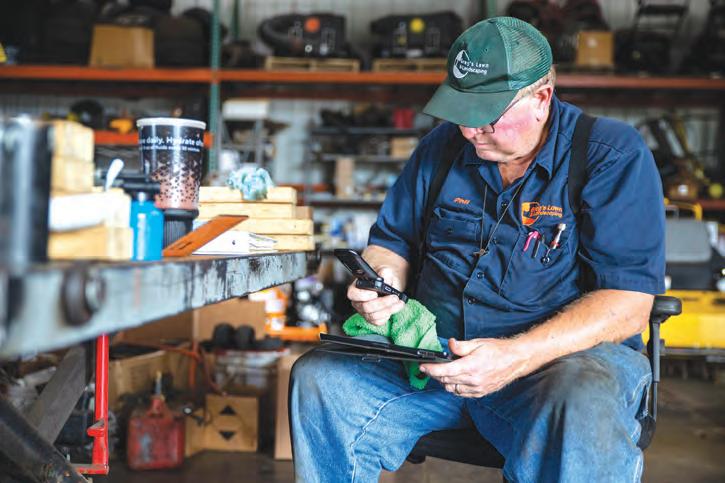
Phil was also chairman of the board’s finance committee and ties his work there to the current salary increases with the board of supervisors.
“The budget for the Iowa City school district is larger than the county’s budget,” he said. “[The school district] also has
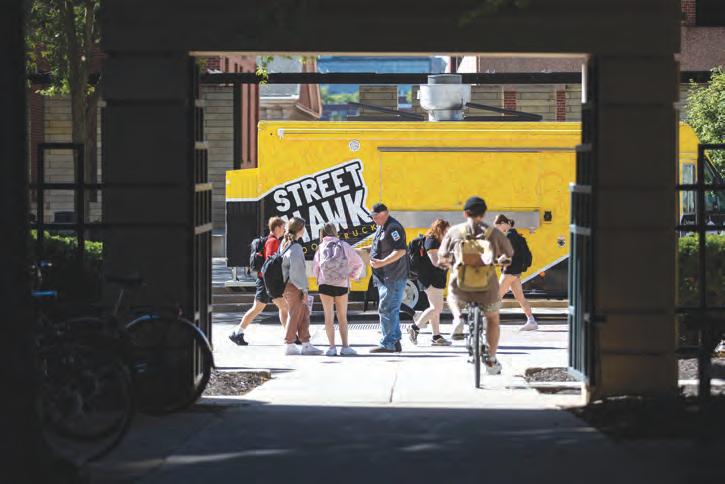
more employees than the county has employees. I oversaw the largest bond issue at the time in the state of over $193 mil lion-plus of spending to renovate our schools … and I did all of that for free,” Phil said.
do is for the betterment of the community,” Phil said. “You can’t hold grudges and things like that, you just have to go on and continue to work ... I’m running to be a voice for everyone in the communi
sion.
—Board of Supervisors candidate Phil HemingwayHe was one of two board members at the time to vote against sending the bond to the full referen dum and said there wasn’t enough in it for special ed ucation, career and tech nical education — and it left Hills Elementary out. Though the referendum passed, Phil saw it as his responsibility as a leader in political office to over see the bond.
“Sometimes you’re on the winning side of it, and sometimes you’re not, but you still have to go on and make sure everything you
ty — and I mean everyone. Not just of one party, not just of one community, but the entire county.”
He likened his politi cal approach regarding finances to the way he manages Phil’s Repair. It wasn’t until his third time running for school board that he thought it would go his way, he said. With his persistence and cur rent politics, Phil believes the seat could fall his way as more people pay atten tion to where their money is going given high infla tion and a looming reces
Looking at his eight campaigns, Phil and Anita are familiar with the struggles that come with achieving success, but they see their Re publican Party affilia tion as an extra barrier in a largely Democratic county. Among the coun ty’s 90,213 active vot ers, 46,645 are registered Democrats, and 16,571 are registered Republi cans. The rest are most ly registered as no-party voters.
“A lot of people in this town and in this county only look at the consonant behind the name and im mediately get turned off,” Anita said. “Some of them lump all Republicans in the same category not realizing that there’s dif ferent shades of Republi cans.”
Phil ran uncontested in the June Republican pri mary with Jammie Brad shaw. They will face off against Democratic can didates Jon Green and V Fixmer-Oraiz on Election Day.
Phil and Anita both mentioned the benefit of having people from dif ferent backgrounds rep resented on the board.
“When you have five people of one political thinking making deci sions for a community that is very diverse in their thinking,” Phil said. “I would think the com munity would recognize the benefit from having a diverse group of leaders.”
Phil’s older brother Da vid is a self-proclaimed “liberal Democrat.” Even though he doesn’t always politically align with his brother, David said they end up supporting the same goals.
Phil said he plans to treat a supervisor’s seat as a full-time job, refer encing the amount of pay received, while some still consider the role a parttime endeavor.
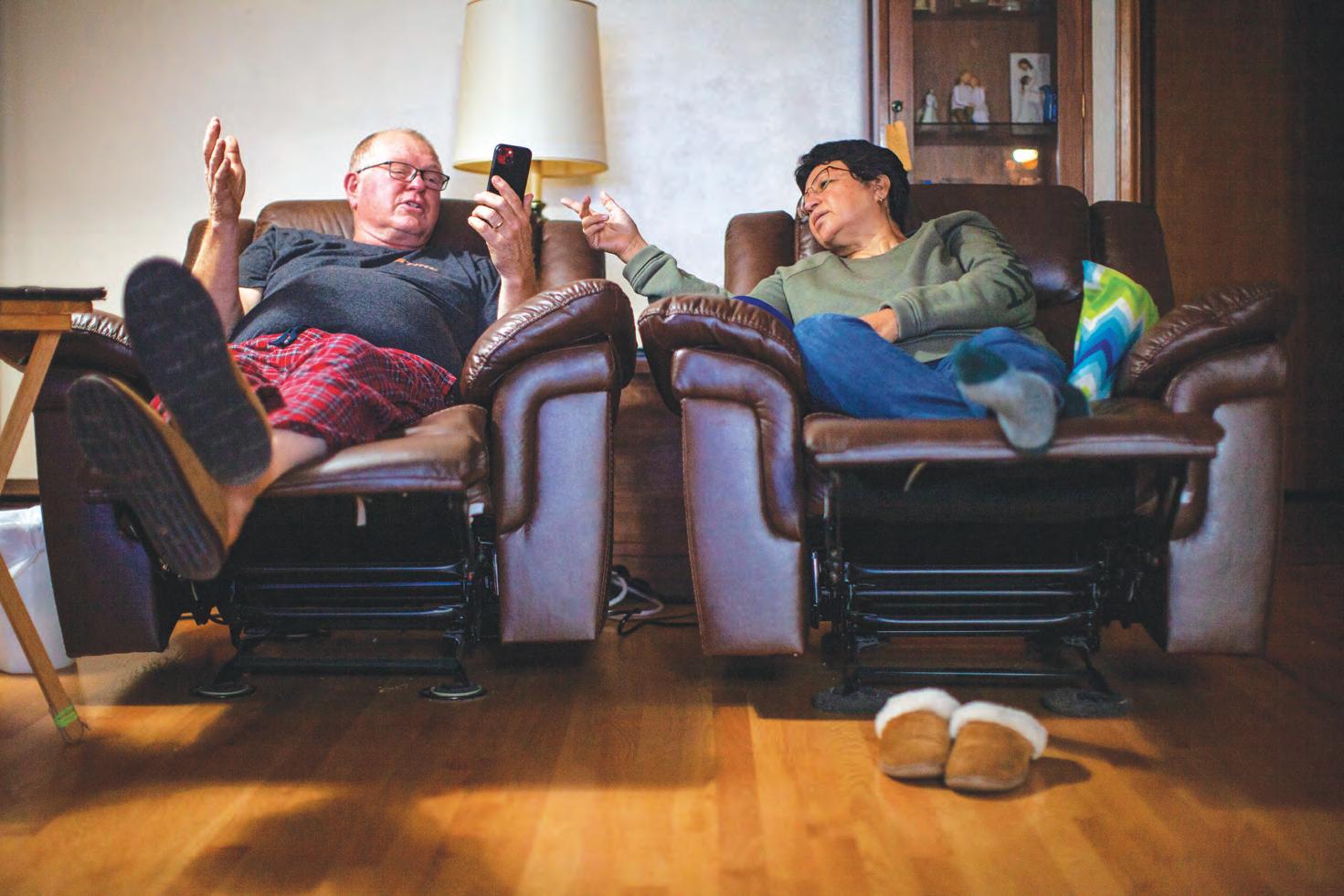
“You don’t take this on to pad a resume,” Phil said of the position. “You take this on to provide a service to the communi ty.”
Phil
Phil opens his auto body shop Phil’s Repair LLC.
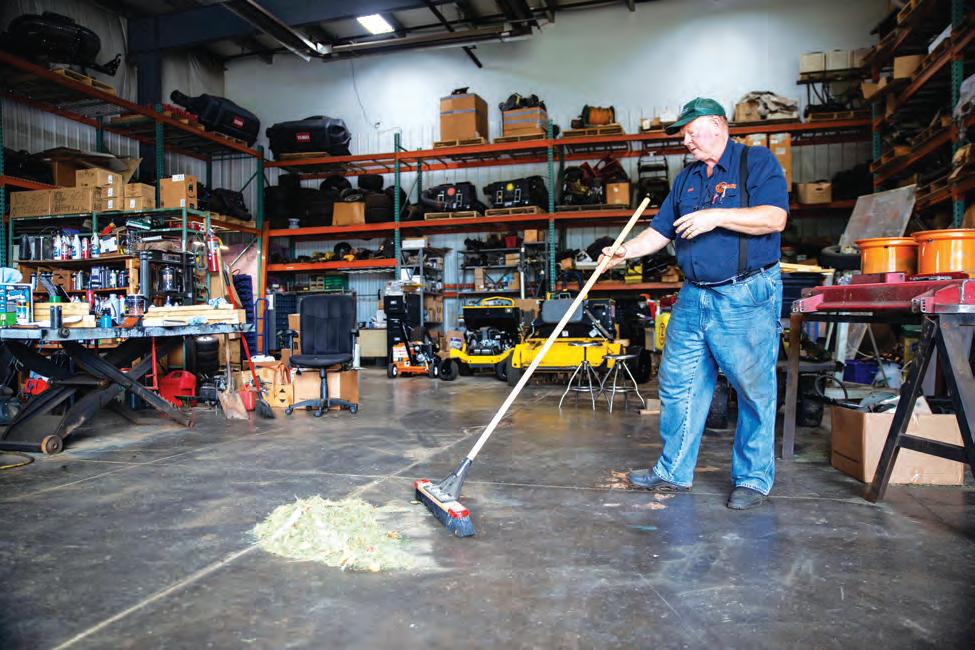
Phil is elected to the Iowa City school board.
2022
Hemingway runs for Supervisors seat for the fifth time.
their daughter Monica. Phil stops working overseas to watch his daughter grow up.
Phil actively attends school board meetings.
Hemingway runs for Board of Supervisors seat for the first time
Infographic by Marandah Mangra-Dutcher
Sometimes you’re on the winning side of it, and sometimes you’re not, but you still have to go on and make sure everything you do is for betterment of the community.
Opinions
The US needs to care about Ukraine

With the ongoing Russia-Ukraine war, it is vital for the U.S. to continue supporting Ukraine.
Elise Cagnard Opinions ColumnistSince Russia’s invasion of Ukraine in late Feb ruary, we have all been aware of the devastat ing war. Whether it was through news outlets or social media, it seems we couldn’t escape the news coverage.
Over time, the constant exposure in the media has died down, and this let people push it out of their minds and forget about the travesties tak ing place. Unfortunately, even if we stop hearing about the war, that it not mean it is over.
When the public los es interest in events like this, it takes the pressure to act off the government. Without people demand ing action from the U.S. government, change is slow, and the people of Ukraine will suffer.
U.S. support in the war is essential to the well-being of the people of Ukraine, whether it be from supplies or funding.
The U.S.’s backing of Ukraine in this war, in cluding an approximated $2.98 billion for civilians, is vital to the ongoing war efforts. If the U.S. stops aiding Ukraine, other na tions are likely to follow, and Ukraine will have a much higher probability of losing this war.
Below are major up dates that have occurred this past week in the Rus sian-Ukrainian war:
There was a bombing on the Russia-Crimea bridge. Crimea was previ ously part of Ukraine, but in 2014 it was annexed by Russia. This blatant act of disrespect for the Ukrainian government built up added resent
ment between the coun tries, so the attack on the bridge came as little sur prise.
While Ukraine has not officially claimed this attack as its own, widespread celebration throughout the country following the event makes the connection clear.
This bridge was sym bolic of Russia’s over-step
Agitate, don’t aggravate
Activism takes many forms, but persistence is key.
activism.
Similar conversations were expressed in the summer of 2020 following the murder of George Floyd.
Sophia Meador Opinions Editor

If you’re not angry, you’re not paying attention.
This is a sentiment felt by many young activists. Across the world, young people are increasingly outraged about the lack of action on urgent social issues like climate change, racial justice, and re productive rights.
Feelings of anger are OK. It’s a sign you care about pressing issues. But how we advocate for social justice should not elic it more anger across the aisle. The best way to be an advocate is to agitate, not aggravate.
On Friday, climate activists with Just Stop Oil, a U.K.-based climate coalition, gained na tional attention after throw ing a can of Heinz tomato soup on the famous painting “Sun flowers” by Vincent Van Gogh at London’s National Gallery.
The activists proceeded to glue themselves to the wall below the painting, and one shouted, “What is worth more, art or life? ... Are you more concerned about the protec tion of a painting or the pro tection of our planet?”
When it comes to garnering national attention, the coali tion succeed. But the conver sations surrounding the inci dent are mixed.
While the purpose of the demonstration was to gain at tention for their cause, many struggle to understand how these drastic actions relate to
After Floyd’s murder, cities across America experienced vandalism from protesters and counter-protesters. At the University of Iowa, the cleanup following racial justice protests totaled over $1 million.
I strongly believe activism should not be passive and compliant. Change will not come from posting infograph ics on your Instagram story or watching a documentary on Netflix.
Meaningful change hap pens when you leave your comfort zone and put in the work to find justice. But justice is not found in the destruction of property or violence. The best way to be an advocate is to agitate your oppressors, not aggravate them further.
One way to be an activist is to lobby your representatives. The notion, “think globally, act locally” is best applied here.
Seeking justice for social is sues can be overwhelming, but change is not on the shoulders of a single individual. It’s on the backs of people in power.
Meaningful change doesn’t happen overnight. It takes time and energy and relies on the boldness of people around you. Speaking to representa tives like local and state lead ers can influence change in your community and inspire change in surrounding com munities.
into Ukraine before the war even started. Destroy ing it symbolized Ukraine fighting back against this repressive regime. Addi tionally, Russia used the bridge to receive supplies, so its destruction has left Russia more vulnerable than before.
In direct response to the bridge bombing, Rus sia sent Iranian drones to
bomb dozens of cities in Ukraine including Kyiv, Lviv, Dnipro, and Zapor izhzhia. The missiles did not target military bases or important government buildings, but instead attacked the people of Ukraine.
A reported 70 missiles were launched, and only half of them were shot down by air defense sys
tems. The remaining mis siles had devastating im pacts. The casualty count is still unknown.
Every week, more events play out that could potentially change the trajectory of the war. It is essential that we pay at tention to what happens.
elise-cagnard@uiowa.edu
Men’s mental health crisis
Activism must also be per sistent. In the wake of injus tice, people take their rage to the streets to demand change. But as time passes, so does the drive of activists. That’s why it’s imperative that activism does not get caught up in the moment because moments don’t last forever. Change is a process, and we must keep on demanding.
A prime example of this is the work of Greta Thunberg. In 2018, the 15-year-old cli mate activist began the move ment Fridays for Future. This movement has spread across the world, with millions pro testing climate injustice each Friday.
In the four years since the movement started, Thunberg gained global attention and was even named Time Mag azine Person of the Year in 2019. Thunberg has raised millions of dollars for climate initiatives and furthered glob al conversations surrounding climate change.
I’m angry about the inaction of people in power, and you should be, too. It’s easy to make drastic actions in the heat of the moment. But going out on the streets and staying persistent for social justice is hard.
As social justice activists, we must fight in the long run. Agitating people in power is the best way to advocate for change; aggravating and throwing soup will do more harm than good.
sophia-meador@uiowa.edu
As social justice activists, we must fight in the long run. Agitating people in power is the best way to advocate for change; aggravating and throwing soup will do more harm than good.”
Stigma around men’s mental health has created a significant crisis for men.
to seek out help. I started seeing a therapist, and my mental health has improved significantly since then.
Evan Weidl Opinions Columnist
There is a silent killer of men in the U.S., and it isn’t a virus or infec tion; it’s depression.
Male suicide has been on the rise since 2000. Almost 10 percent of men have daily feelings of depres sion or anxiety, according to the American Psychological Associa tion. Yet, less than half of that 10 percent spoke to a mental health professional or took medication for those feelings.
Norms and standards surround ing masculinity encourage men to suppress their feelings, and this is killing men. It will take a significant change in the way society views masculinity to remove stigmas sur rounding mental health.
Some of the most prominent con tributors to the men’s mental health crisis are the traditional standards of masculinity. According to a study by Benita N. Chatmon, Louisiana State University assistant dean for clinical nursing education, the traditional roles men are raised on encourage power and dominance. This in turn discourages expression of emotion and leads to the inability to under stand and communicate emotion.
Earlier this year, I went through a depressive episode. I didn’t en joy doing anything that I normally loved doing. Every part of my day felt like a chore; even getting out of bed in the morning took a signifi cant amount of willpower.
Even at my worst, I never felt ashamed to feel what I felt, nor did I feel ashamed to admit that I needed
I feel very lucky that I could quickly recognize that I needed help and seek it out. Unfortunately, this is not the case for millions of men. I can’t imagine where I would be today if I never sought out help, and we must prioritize teaching men that it is necessary to admit they are struggling and need help.
To create a significant shift in our society’s attitude toward men’s mental health, it will take countless small actions committed by indi viduals.
This is not to say masculini ty has no value, but it should not take priority over mental health. Strong masculinity and consider ation of mental health are not mu tually exclusive, and we must teach young men to find that balance. Taking care of your mental health and well-being does not mean you are weak, nor does it diminish your masculinity.
Additionally, men must hold themselves accountable as well. If we want things to be more accom modating to us, we must be more accommodating to one another. This means listening to one an other, taking our own health and the health of others seriously, and recognizing that being competitive and dominant should not be a pri ority over mental health.
The most important thing we can do as a society is create a culture that educates and encourages ev eryone to seek help if they experi ence mental health issues.
If you know someone who is or may be struggling with their men tal health, reach out to them. Even a small action like that may make the difference for someone who is struggling.
evan-weidl@uiowa.edu
EDITORIAL POLICY


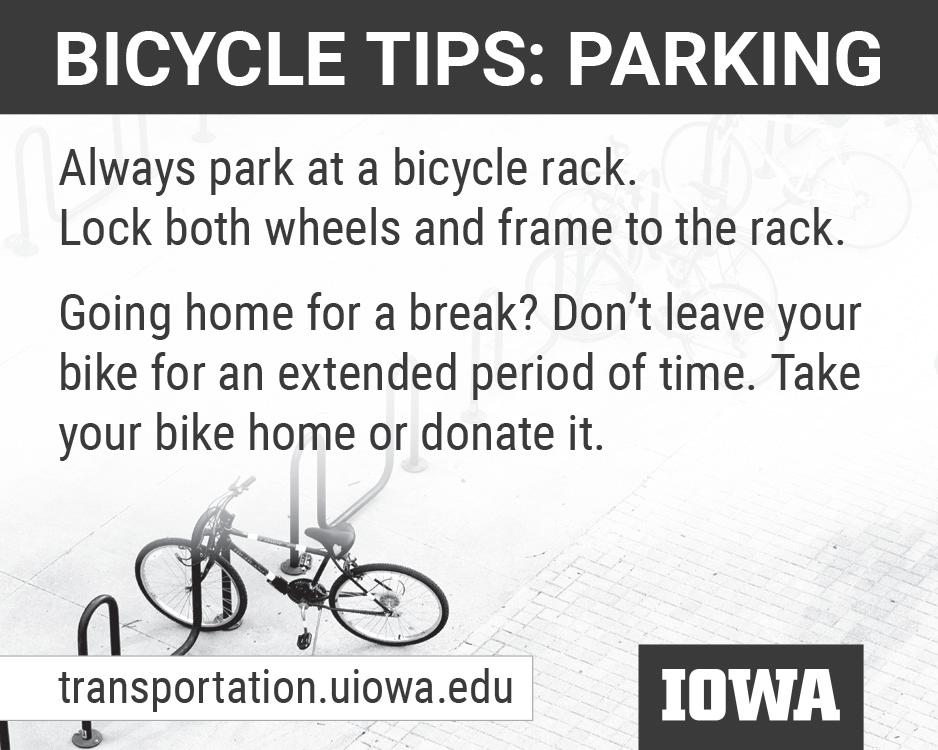











V
Fixmer-Oraiz’s journey to candidacy
Grace Smith PhotojournalistWhile rain trickled down onto East Washington Street and bounced off food stand tents at the Iowa City Farmers Market on Sept.17, V Fixmer-Oraiz stood near the entrance of Chauncey Swan Parking Ramp and spoke with community members about their John son County Board of Super
visors campaign.
All sporting rain jackets, V’s grandparents, John and Val Bowman, spoke with V’s wife, Natalie Fixmer-Oraiz, while the Fixmer-Oraiz chil dren — Emmons, 7, and Cel so, 4 — ate powdered sugar donuts from a vendor.

V is one of four Johnson County residents vying for one of two open seats on the board in the general election on Nov. 8. They
are running against Jammie Bradshaw, R-Lone Tree; Jon Green, D-Lone Tree; and Phil Hemingway, R-West Liberty.
V said it is important for their children to understand the election process and be exposed to political and worldly situations, includ ing the Russia-Ukraine War and the insurrection on Jan. 6, 2021, at the U.S. Capitol. V brings Emmons and Celso to the farmers market to speak with community members or drags a wagon up and down grassy hills while they door-knock through small towns.
Because of V’s participa tion in the election process, Emmons often asks to listen to the news on the way to school or the Iowa City Pub lic Library.
“I don’t want [Emmons] to grow up railing against one side or the other,” V said.
“I want him to see what it is for what it is and under stand at least the breadth of it — if not the depth of it.”
After V entered the race, they said Emmons has talk ed more about Democrats and Republicans than ever before.
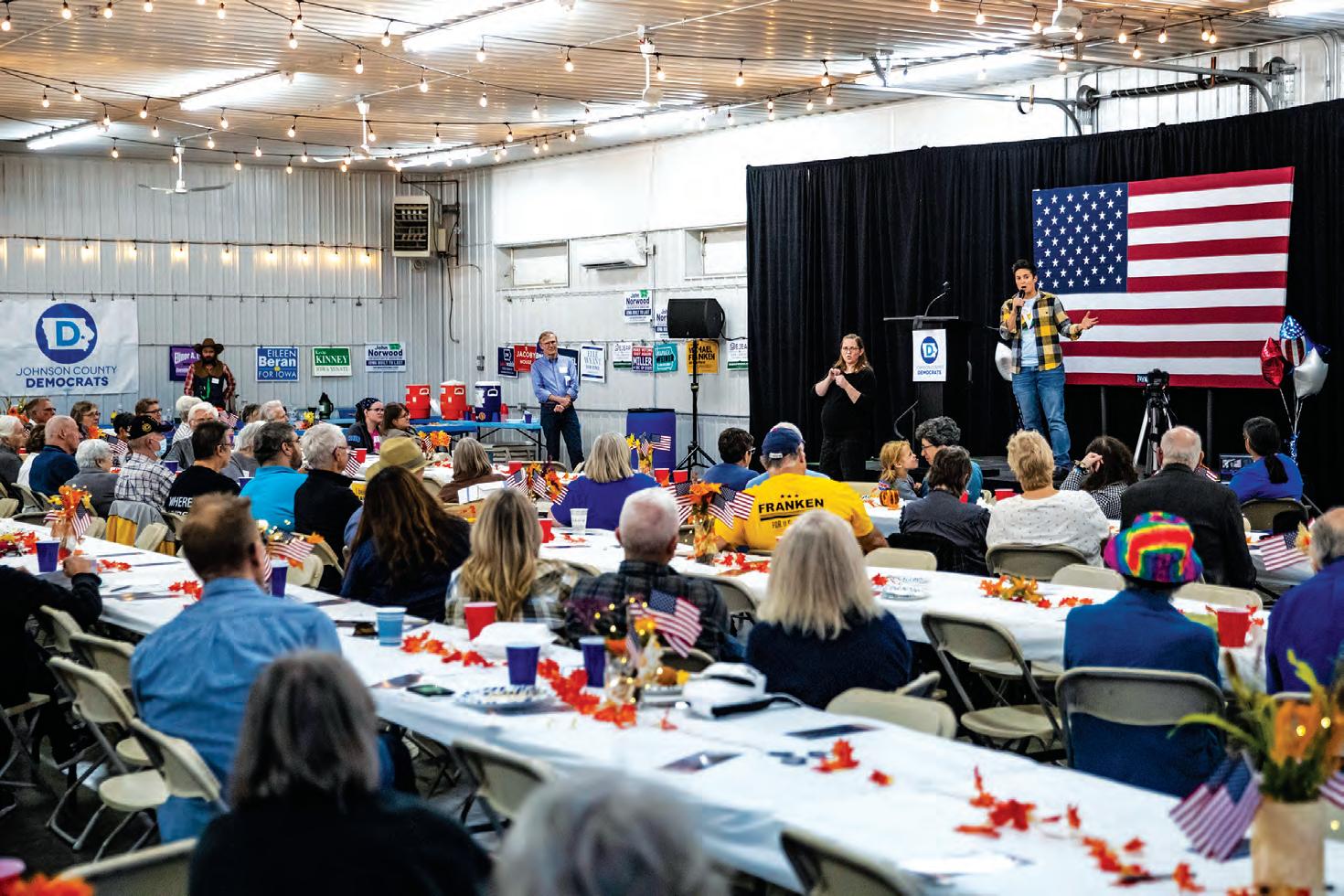
“It’s not because I’m this die-hard Democrat,” V said. “It’s the ways our society pins these things against each other. And I think our responsibility as parents is to just retain that curiosity.”
Curiosity continued during the primary elec tions, when V, Green, and Seth Zimmerman battled for two spots to run in the general election for the board.
Despite the friendly battle between other Democratic candidates in the June pri maries — with two Repub licans and two Democrats running for the open seats in the general election — V and Green now work closely
together and help with each other’s campaigning.
“There’s two people that believe in a woman’s right to choose, there’s two peo ple that believe in a livable wage, and it’s me and Jon,” V said. “We’re climate ac tivists, we believe in racial justice, and we do the work.”
V has worked with the current board for about fiveand-a-half years as Johnson County Historic Poor Farm manager. In February, a few board members approached V and mentioned they should consider running for the board.
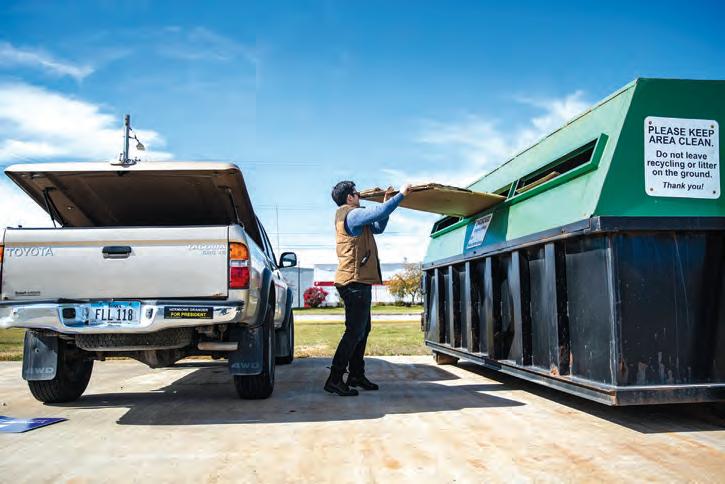
With V’s experience working closely with the board, they said they already understand some tasks such as agenda and budget plan ning. V said they are excited to potentially step into a role that could have a larger impact on the community they reside in.
“I saw that there was an open seat and felt like it was really time to step outside of my comfort zone,” V said. “Having more of a policy in fluence and a budgetary in fluence I think would be just a better opportunity given the experience that I have, given who I am, too. I mean, I can’t get away from iden tity politics. It just informs who we are everywhere, right?”
V, who is transgender, biracial, and identifies as queer, said showing com munity members that all types of people live in John son County and deserve to be heard would be very valuable on the board.
If V is elected to the board, they would be the first bira cial, transgender, and queer person in an elected county position in Iowa.
“I think that we can do a better job of inclusivity. It’s 2022,” V said. “We need to have that representation.”
V finds identity and partner
V first experienced same-sex attraction in high school, but the terms “gay” and “lesbian” were often used as expletives on the 30 different military bases they grew up on before turning 16. With help from a bas ketball coach who identified as gay while V was in high school, they realized they didn’t have to hide who they were.
“It was this whole new world, and it really made sense to me,” V said.
V said they call the time period they came out as the “best of times and the worst of times” because, despite their identity not being well-received by their parents, they finally felt like themselves.
V said family is family, and their relationship with their parents is restoring itself.
After coming out in high school, V went to college in San Francisco, where they lived for about five years be fore transferring to the Uni versity of North Carolina at Chapel Hill. There, they par ticipated in political drag, where their performance troupe performed and used art in activism work and built political community.
“We were around for a decade, and we traveled all over the country and then even Europe,” V said. “We had some shows in Amster dam and London, and we were like a Feminist Collec tive.”
In 2005, when V lived in California, they met Natalie through mutual friends and political organizing. The couple had a long-distance relationship while Natalie was a graduate student at UNC Chapel Hill and worked at Planned Parenthood. In 2008, V moved to North Car
olina to be with Natalie and finish their undergraduate career in environmental studies when they were 27 years old and Natalie was 26 years old.
Natalie said she is grate ful to be in a partnership with her best friend.
“They have this deep well of generosity, this deep well of patience, this deep ap preciation for other humans trying to be human on the planet,” Natalie said. “It’s astounding, and I love that about them.”
V and Natalie have been married for 14 years, and V said their connection grows stronger every day. V said Natalie’s passion for repro ductive rights, and V’s work in environmental justice creates a lot of intersection ality in their lives.
“We met in that space of making art and making change and working with the community to bring about that change,” Natalie said. “Our love for one an other is really grounded in this fierce commitment to social justice and to hope fully making the world a lit tle bit better.”
Natalie has been an asso ciate professor of commu nication studies and gen der, women’s and sexuality studies at the University of Iowa for 10 years. Natalie said her favorite part about teaching is the collaborative process.
The collaborative process continues in the couple’s home life when co-parent ing. Natalie said she ad mires how V always makes time for family despite how busy other parts of their life make them.
“As busy as V gets with work and this campaign, V puts it all aside,” Natalie said. “V will always make time for dinner, for play, for bath time.”
And V said the same about Natalie.
“She’s an incredible co-parent,” V said. “We’re both learning, and we’re both in it together.”
For V, parenting clarified their transgender identity. V said they were placed in heteronormative spaces, including birth and parent ing classes, that pushed V to consider why they want ed to transition.
“It’s like death by 1,000 cuts,” V said. “Do I want to transition and have top surgery because that’s who I am and that’s how I’ve al ways wanted to be? Or do I want to do that because this heteronormative struc ture is pushing me in that direction?”
When they were a child, V said there wasn’t a lan guage for how they iden tified. V said they want to make a change in Johnson County by representing a marginalized community and pushing back on Re publican state legislative proposals including bath room bans.
“It’s wrong to make kids go through that. It’s wrong to make families go through that,” V said. “At this point, I feel comfortable being the person to stand up and say, ‘No, we’re here. And we matter.’”
V’s passion for environment, equity takes off
V studied environment and watershed planning in college. This passion led them to start Astig Plan ning, a planning service striving for healthy ecosys tems and equity through advocacy.
After working in engi neering and planning firms for a few years, V realized there weren’t any plan ning firms that addressed climate change and social justice nearby, so they started one in Iowa City in February 2019.

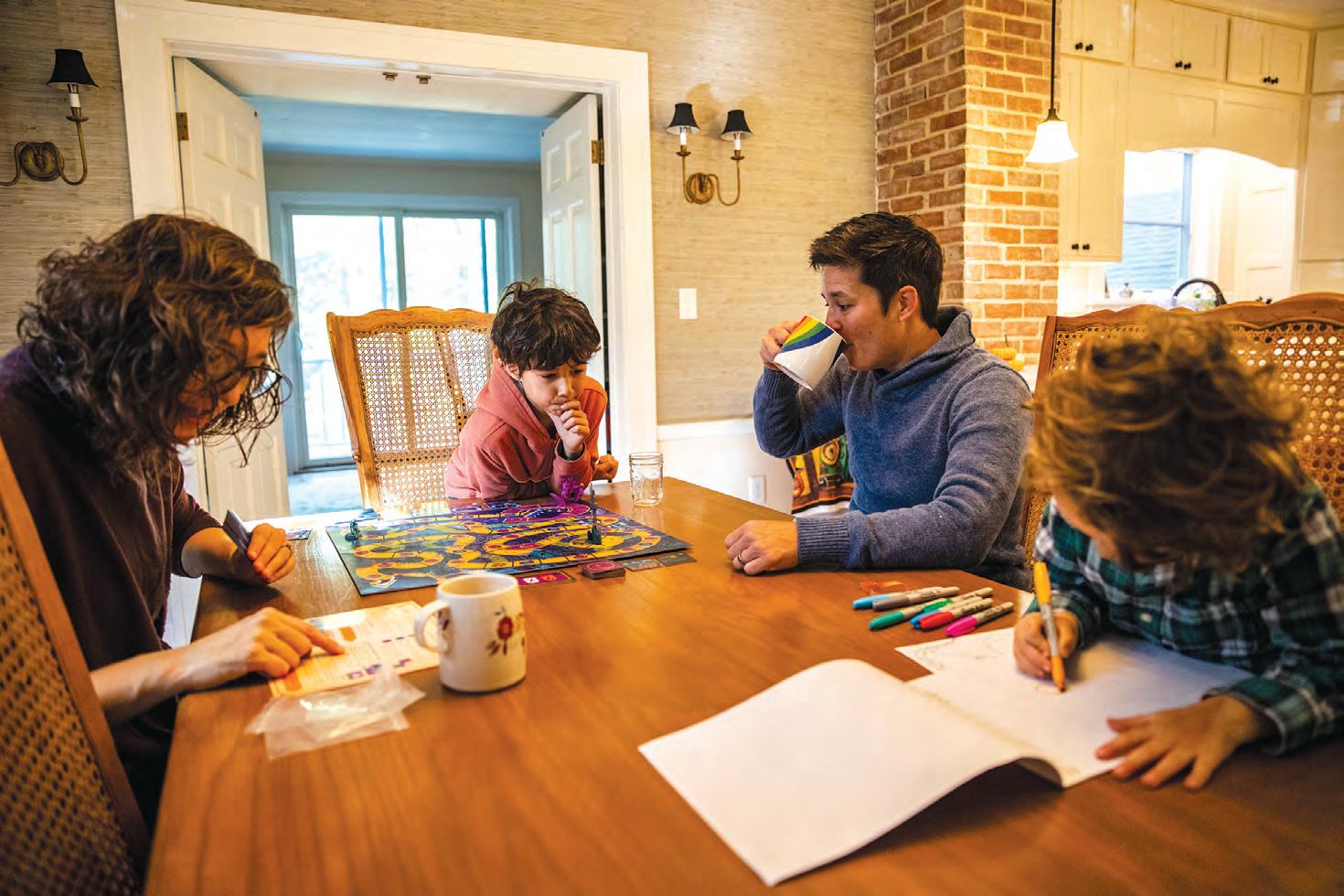

“How do we plan for those folks to be successful in life, to have dignity and respect and care and all the things that they need?” V said.
Astig Planning started at Merge Downtown — a coworking space in Iowa City — where V’s business found connections and at tention, being across from Iowa City Area Develop ment staff members. Now, the planning firm operates in the South District on Keokuk Street, near com munities V hopes to help through planning.
V’s dedication for help ing marginalized commu nities continued through their position as vice pres ident of the Johnson Coun ty Affordable Housing Coalition, an organization that creates affordable and fair housing for all Johnson County communities.
If elected to the board, V said they will contin ue pushing for inclusivity through affordable hous
ing. “Having clean water matters, having access to public education and health care — those things matter,” V said.
Sara Barron, executive director of the Johnson County Affordable Hous ing Coalition, also cares about inclusivity in the county, which is why she stepped into the role of V’s campaign manager before their official announce ment came out in February.
Barron said before the candidacy announcement, V made a list of people they wanted to inform of their candidacy, and Bar ron was on that list. Bar ron asked to help out with their campaign right away.
“I think they are an ab solutely fantastic leader with the skills and temper ament that we desperately need in all levels of gov ernment,” Barron said.
Barron said the Johnson County Affordable Hous ing Coalition doesn’t en dorse specific candidates and works with everyone who’s running for office and holds elected office to ensure they understand the importance of afford able housing.
Barron and V met while V served on the city of Iowa City’s Housing and Community Development Commission, whose mem bers are appointed by the City Council. Barron saw the passion V put toward the city’s social services and knew she wanted them on the coalition’s team.
When V’s term ended around April 2020, Bar ron asked V to join the
team. Now, the two work closely campaigning and attending events such as the Johnson County Dem ocrats Fall Barbecue.
Barron said working with V on their campaign has been nothing but joy ful, and she admires V’s commitment to showing up to events despite their already full schedule with a family and running their business.
“When V comes to talk to your group or when V knocks on your door, they
aren’t just there to talk about themselves and their campaign,” Barron said. “They’re there to hear about what’s important to you. And that ability to listen and convene people and make space for people to share what’s important to them is really powerful.”
V’s support system and mo tivation
All of V’s campaign vol unteers are unpaid, and V is grateful they have
support from community members to fuel their can didacy.
“To truly have peo ple willing to spend their resources, their time, their energy, their voice, their networks — any of it to support me,” V said.
“It just brings me to my knees.”
For the reporting pe riods spanning Jan. 1 through July 14, V re ceived $18,221.24 in con tributions to their cam paign, according to the
Iowa Ethics and Campaign Disclosure Board.
V said the help they re ceived from their family, other Democratic candi dates, volunteers, and the community has kept them afloat during the election process.
“It makes that light burn hotter,” V said. “I know that I’m not alone. And I know that this is important and that people are paying attention.”
grace-smith-1@uiowa.edu
Caitlin Clark signed to the swoosh
extremely lucky and bless ed to have Caitlin in our league,” Purdue women’s basketball coach Katie Gearlds said. “The nation al attention she gets and what it does to elevate our game and our brand … hate playing against her, hate game-planning against her, but what she does is, I mean, she puts eyes on all of us.”
Northwestern women’s basketball head coach Joe McKeown said Clark’s style is attracting new specta tors to the sport.
“She just has this cha risma and personality, too, that people want to watch,” McKeown told The Daily Iowan. “Give her a lot of credit; her game speaks for itself. But the way she plays, she's brought fans into our game that maybe wouldn't normally watch women's basketball. And I think that's where it's real ly helped everybody.”

McKeown’s squad is 3-2 against Iowa in the past two seasons. The Wildcats and Hawkeyes are set to face off once this season on Jan. 11 at Carver-Hawk eye Arena.
Rutgers hasn’t beaten Iowa in Clark’s two seasons in Black and Gold, losing by margins of six, 11, and nine points, respectively.
Chris Werner Assistant Sports Editor
Caitlin Clark, one of the most popular players in NCAA women’s basketball, signed a name, image, and likeness deal with Nike ahead of the 2022-23 sea son.
The Iowa star was one of five student-athletes signed by Nike on Oct. 11. The popular sports brand also made deals with high school players Bronny James — the son of NBA veteran Lebron James — DJ Wagner, and Juju Watkins. Clark’s deal comes along side Nike signing Stanford women’s basketball player
Haley Jones. Clark, now a junior, is a two-time winner of the Dawn Staley Award — an award given to the best guard in collegiate wom en’s basketball. Clark was the Big Ten Player of the Year last season. She has been named a first-team All-American twice.
Last season, Clark be came the first player in Division I collegiate bas ketball to lead the nation in both points and assists per game, averaging 27 and eight, respectively.
“Obviously, I'm very honored and blessed to have that,” Clark said about the deal with Nike on Oct.
11 at Big Ten Basketball Media Days in Minneapolis. “Obviously, [as] somebody who grew up loving sports, I played a lot of different sports growing up. A lot of the athletes I loved were part of the Nike family, so to become one of them is truly an honor.”
During her first two sea sons in Iowa City, Clark took the women’s basket ball world by storm. She has formed relationships with multiple profession al athletes and celebrities. Brooklyn Nets star Kevin Durant and rap artist Travis Scott have both mentioned Clark on social media.
But Clark’s play isn’t just
helping her pop up on ce lebrities’ feeds. It’s also helping get more eyes on women’s basketball.
The 2022 NCAA wom en’s basketball champi onship game between UConn and South Caroli na attracted 4.85 million viewers — the most for any college basketball game on ESPN since 2008.
Meanwhile, the Big Ten Network, home to many Iowa women’s basketball games in 2022, enjoyed the most-watched season of women's hoops in its history. The network’s av erage of 70,000 TV view ers per game was up 41 percent from the previous
season.
Four of the highest-rat ed women’s basketball games in BTN history were played during last year’s Big Ten Tournament.
The highest-viewed con test was the tournament semifinal between Iowa and Nebraska, which drew 286,000 viewers as Clark dropped 41 points on the Cornhuskers.
The Hawkeyes’ 92-88 loss to the Ohio State Buckeyes at Carver-Hawk eye Arena on Jan. 31 was BTN’s most-watched reg ular season women’s bas ketball game, with 164,000 tuning in.
“As a conference, we're
Rutgers junior guard Erica Lafayette said, while Clark increases the populari ty of women’s basketball around the country, she also raises the level of the game.
“She helps us a lot,” La fayette said. “I think she helps everyone level up their game because we know we have to guard her. And if you don’t guard her, she’s going to punch you in the mouth. You don't want to get that. So, I think she just levels up the game 10 times more, you know, makes everyone feel like you have to work harder.”
christopher-werner@uiowa.eduHayashida focused under pressure
The freshman from Peru, who competed
national tennis team,
used
hostile
about someone,” Schmidt said. “She is always sup portive. After I lost, she came to me and gave me a hug.”
Even at the national and collegiate level, Hayashida has a desire to enjoy the game she’s played since she was 5 years old. While that enjoyment was obscured at times due to nerves, her goal remains to have a good time.
“I think that I’m now more nervous than I was when I was 11. It’s cra zy.” Hayashida said. “Be cause at that age, I didn’t know about favorites and pressure. At that age I just played for fun. So, now I’m always trying to have fun. I play tennis because I enjoy playing tennis.”
Daianne Hayashida is used to pressure.
Not only has the Iowa tennis freshman represent ed her native Peru as a ten nis player since she was 11 years old, but she has also played in hostile environ ments.

Hayashida played the 2021 Pan American Games in Columbia the year be fore she arrived at Iowa. Competing against a Co lumbian player, the crowd at center court was not ex actly on her side.
“I just had my team mates and my parents go to the tournament,” Hayashi
da said. “So, I had like six people for me. I missed one serve, and people were say ing things like, ‘Miss again.’
It was very tiring.”
Despite heckling from fans, Hayashida won the match in straight sets, fin ishing the singles tourna ment with a bronze medal.
Growing up in Lima, Peru, Hayashida participat ed in running and swim ming. Hayashida played her first tennis tournament at 8 years old and said the sport appealed to her be cause of the game's chess match style.
“A match is like two hours, and I’m alone in the court, and I have to think, ‘No one can help me,’” Ha
yashida said. “When I swim or run, one minute and it’s over. So, tennis I found more interesting because I have to think about strat egies and all those things.”
Tennis’ analytical ap proach allows Hayashida to stay calm throughout a match regardless of the score. In fact, Hayashida said she didn’t even cele brate earning a point two years ago.
“I can focus easily; out side things are not very dis tracting for me,” Hayashida said. “Also, I’m not very mad when I miss. I can be losing 5-0, and I’m like, ‘Ok, let’s keep going.’ Some times, girls are 4-0 down or 3-0 down and they’re just
like, ‘I don’t want to play anymore’ or smash their racket.”
One such outside influ ence is the flurry of Ins tagram direct messages to Hayashida’s account before and after interna tional tournaments. She described how Peruvians would often shower her with praise before a match but would then criticize her if she lost.
“It’s a lot of pressure be cause it’s not just me, it’s all my country,” Hayashida said. “All the Peruivan peo ple texting me, ‘You can do it,’ ‘You’re the favorite.’ I remember I didn’t look at my phone until 8 p.m. the night before the match.
And when I lost, people would text me sh*t.”
To keep her focus ahead of a match, Hayashida lis tens to Spanish music and practices yoga.
“I love to do yoga. I think that helps me a lot with breathing when I play,” Hayashida said. “When I’m excited to finish a match or finish a point, that helps me to focus again.”
Accompanying this focus is the constant support she provides her teammates.
Sophomore Marisa Schmidt described Hayashida as a comforting presence, espe cially after someone loses a match.
“She is super nice. I feel like she will never talk bad
Hayashida had a right foot injury before she com mitted to Iowa. While she sat out for four months, she debated whether or not to take the professional route and join the Women’s Ten nis Association. Ultimately, she chose to attend Iowa, where she majors in psy chology. Though Hayashi da plans to try going pro after she graduates, her head coach Sasha Schmid is happy with her right where she is.
“Such a wonderful com bination of somebody who is a wonderful teammate, generous in so many ways with such a good heart, but is very, very competitive and really fights for her self in a really healthy way when she plays,” Schmid said. “I love seeing some body who can balance those two things out, that can balance out respecting their opponent and being a good teammate and also really giving to yourself, pushing yourself, believing in yourself.”
